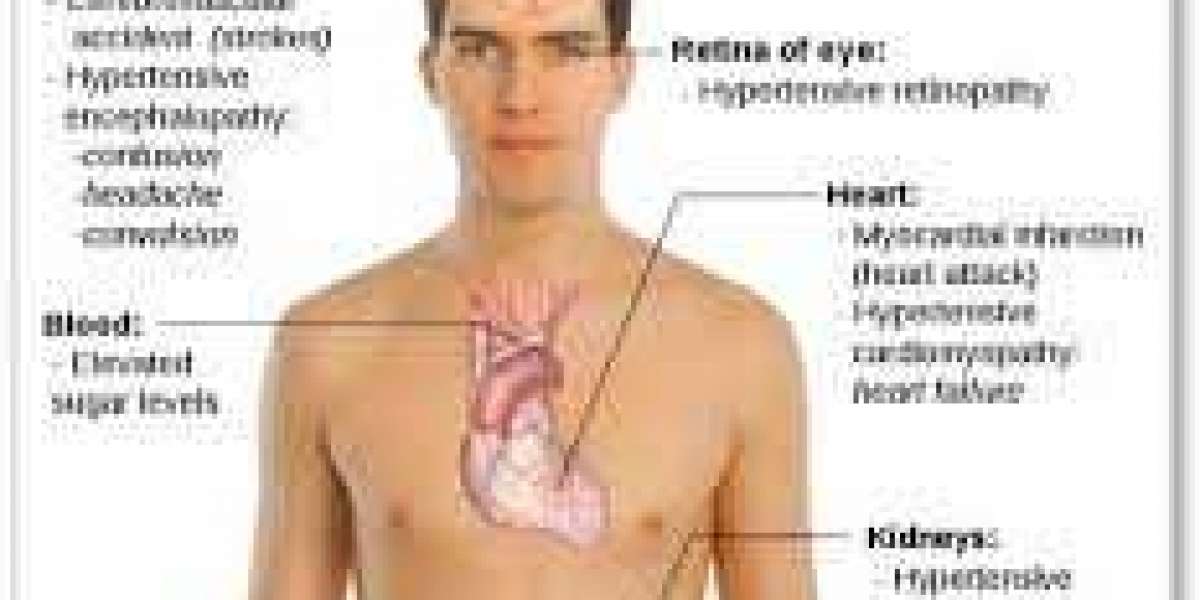High blood pressure, also known as hypertension, is a common but serious health problem. It means the pressure in your blood vessels is too high. If not treated, it can lead to heart disease, stroke, kidney damage, and other major health issues.
Many people don’t even know they have it because there are no clear warning signs. That’s why it's called the “silent killer.” But the good news is that you can manage it with simple lifestyle changes and the right support.
Let’s look at the common symptoms and the best solutions for keeping your blood pressure in a healthy range.
Common Symptoms of High Blood Pressure
Most people with high blood pressure may feel fine for years. But over time, the pressure damages your organs. When symptoms do appear, they can include:
Headaches, especially in the morning
Dizziness or blurred vision
Chest pain or tightness
Shortness of breath
Fatigue or confusion
Irregular heartbeat
Nosebleeds (in severe cases)
If you experience these symptoms often, you should check your blood pressure and consult a doctor.
Main Causes of High Blood Pressure
Several factors can lead to high blood pressure:
Unhealthy diet, especially one high in salt and fat
Lack of physical activity
Being overweight
Smoking and alcohol use
Stress
Family history of hypertension
Chronic illnesses like diabetes or kidney disease
Even if you feel fine, regular check-ups are important.
Effective Solutions to Manage High Blood Pressure
1. Eat a Heart-Healthy Diet
Choose foods low in salt, sugar, and unhealthy fats. Add:
Fresh fruits and vegetables
Whole grains like oats and brown rice
Lean proteins such as chicken, fish, and legumes
Low-fat dairy products
2. Stay Active
Exercise helps your heart pump better. Aim for at least 30 minutes of physical activity five days a week. This can include:
Walking
Cycling
Swimming
Yoga or light stretches
3. Reduce Salt Intake
Salt makes your body hold more water, which raises blood pressure. Avoid processed foods and snacks. Use herbs and spices instead.
4. Maintain a Healthy Weight
Losing just a small amount of weight can lower your blood pressure. Eat balanced meals and stay active.
5. Limit Alcohol and Quit Smoking
Both alcohol and smoking raise your blood pressure. Limit drinks to a safe amount and stop smoking to protect your heart and blood vessels.
6. Manage Stress
Chronic stress raises blood pressure over time. Try deep breathing, meditation, journaling, or spending time in nature.
7. Take Medications as Prescribed
Sometimes, lifestyle changes aren’t enough. Your doctor may prescribe medication to help control your blood pressure. In certain cases, medicines like Vidalista 2.5mg, while often used for other conditions, may support blood flow and overall cardiovascular health — but only under medical advice.
8. Monitor Your Blood Pressure at Home
Use a digital blood pressure monitor to track your numbers daily. This helps you and your doctor know what’s working and what needs to change.
Final Words
High blood pressure is serious but manageable. The key is to take action early. Eat better, move more, reduce stress, and follow your doctor’s advice. Even small changes can make a big difference. Don’t wait for symptoms — get your blood pressure checked and start living a heart-healthy life today.




